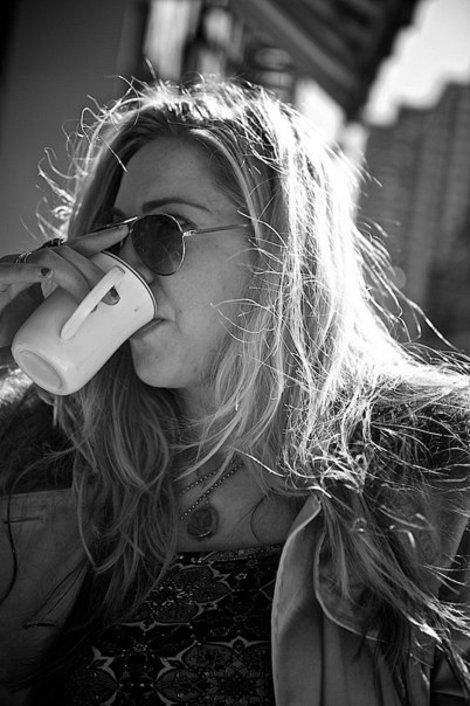What Happens when You Get Older but You Don’t Stop Wetting the Bed

Mandy Stadtmiller is an extremely giving writer. In her hundreds of pieces on xoJane, she's shared all kinds of intimate, eviscerating stories about her personal life, her interactions with the rich, famous and powerful and her intense, painful childhood. In a recent post, she shares the trauma of wetting the bed until she was 15-years-old in snippets of memory that end in sentences like, "My life was definitely over," and "I'm the bad one. Nothing seems to fix me. I am hopeless. Disgusting. Unlovable."
Experts say that bedwetting can be cured by fixing constipation issues or using enuresis alarms that wake a child who has wet the bed, but I remain skeptical that those things work for everyone. (Even experts admit that constipation is only a factor in 80% of bedwetting cases.) Stadtmiller's parents tried solving her bedwetting issue by using an alarm, but it didn't make a difference. In a particularly moving passage about the alarm, she writes:
I crawl up onto my old stiff sheet with the device that is called "the Buzzer" underneath, a metallic sheet that will ring if it is exposed to wetness. I will not do it. I will not make it buzz. I am a smart girl. I have to stop this. I have to stop being bad and shameful. Look at everything my parents are doing. What will come next? Will I resort to literally sleeping in a nursemaid's arms as she carries me to the bathroom every few hours?
My child psychiatrist tells me that my bedwetting, my constantly sick stomach leading to diarrhea during the day, are from being so stressed, so anxious. It is probably the result of stress that I feel with growing up in my household - a rageaholic head-injured blind combat vet and an obsessive-compulsive mother. I appreciate the empathy but I know that at the end of the day, I'm the problem.
Related: The 10 biggest misconceptions about bedwetting
Medical research has proven that bedwetting is genetic, and therefore generational. Doctors continue to focus on the physical causes of bedwetting, but what about the emotional ones? Perhaps the generational nature of bedwetting has more to do with the anxiety passed from generation to generation through poor coping skills and toxic behavior than it does any physical issue. And as Stadtmiller's heartbreaking childhood self-loathing and self-punishment surrounding her nighttime horror proves, a child or young teen trapped in a cycle of shame isn't likely to be able to stop wetting the bed by will alone. It wasn't until Stadtmiller achieved physical maturity that she could wake up dry.
Stadtmiller hadn't wet the bed in more than 20 years, but when she recently attended a psychodrama workshop that stirred up old emotions about her stressful childhood, she came home exhausted and fell asleep without using the bathroom, only to wake up covered in pee. She says:
At 5 a.m. I wake up in a panic. Oh my God. No.
I throw my sheets off the bed. I throw my pajamas off. I am sickened at myself, but it is a different feeling. It is a feeling that has changed, that has evolved.
I am also empathic to myself. I'm no longer afraid of the unspeakable. I'm no longer ashamed of the skeletons in my closet.
I feel and hear now that little child inside me who is screaming and scared and angry. I'm ready to take care of her now.
I promise her: She won't ever be alone again.
I loved reading Stadtmiller's private, public confession about wetting the bed, because I come from a family of bedwetters. My mother wet the bed as a child, I did, my daughter did. Like Stadtmiller, I wet the bed at a sleepover as an older child and was mortified, trying frantically to cover up the accident. I didn't wet the bed as a teen, but I did pee my pants in the middle of my friend's kitchen once. I don't mean that I peed my pants a little bit so that my pants were wet and then I made it to a toilet. I'm talking full steam ahead, Niagara Falls-style peeing all over her kitchen floor. It was one of the most hilarious moments of my entire life, but that's only because I was in the company of really generous people who could laugh about it rather than judge me - and because it happened on easy-to-clean linoleum and not a mattress or rug. It happened because I was "holding it" too long, trying to entertain and tell jokes, so nature decided to sabotage the punchline. I was truly a hot mess. And you'd think I would have learned my lesson, but no. I still find myself "holding it" too long sometimes, hoping that history won't repeat itself like on that day when my privates sounded like that line R. Kelly line from Mackelmore's "Thrift Shop." Pissssssssssssssssss.
Anxiety and urination are not strange, but comfortable bedfellows. Anxiety causes frequent urination, frequent urination can lead sufferers to want to hold their bladder so they're not chained to a bathroom all the time, but that causes accidents, which fuels anxiety, since accidents are often seen as shameful. It's a problem, one some psychologists say can be cured best by using imagination and relaxation. Charlotte Reznick writes for Psychology Today, "I've found that a child's imagination has been especially effective in overcoming and controlling bedwetting. By learning to deeply relax, turn inward, and listen to what their body truly needs, children find their own unique solutions." Stadtmiller proves that adults can, too, even if they're 38 and still grappling with childhood.
- By Carolyn Castiglia
For 8 tips for coping with bedwetting, visit Babble!
MORE ON BABBLE
20 simple ways to show your kids you love them
12 things your kids MUST see you do
20 things ALL women do but hate to admit

